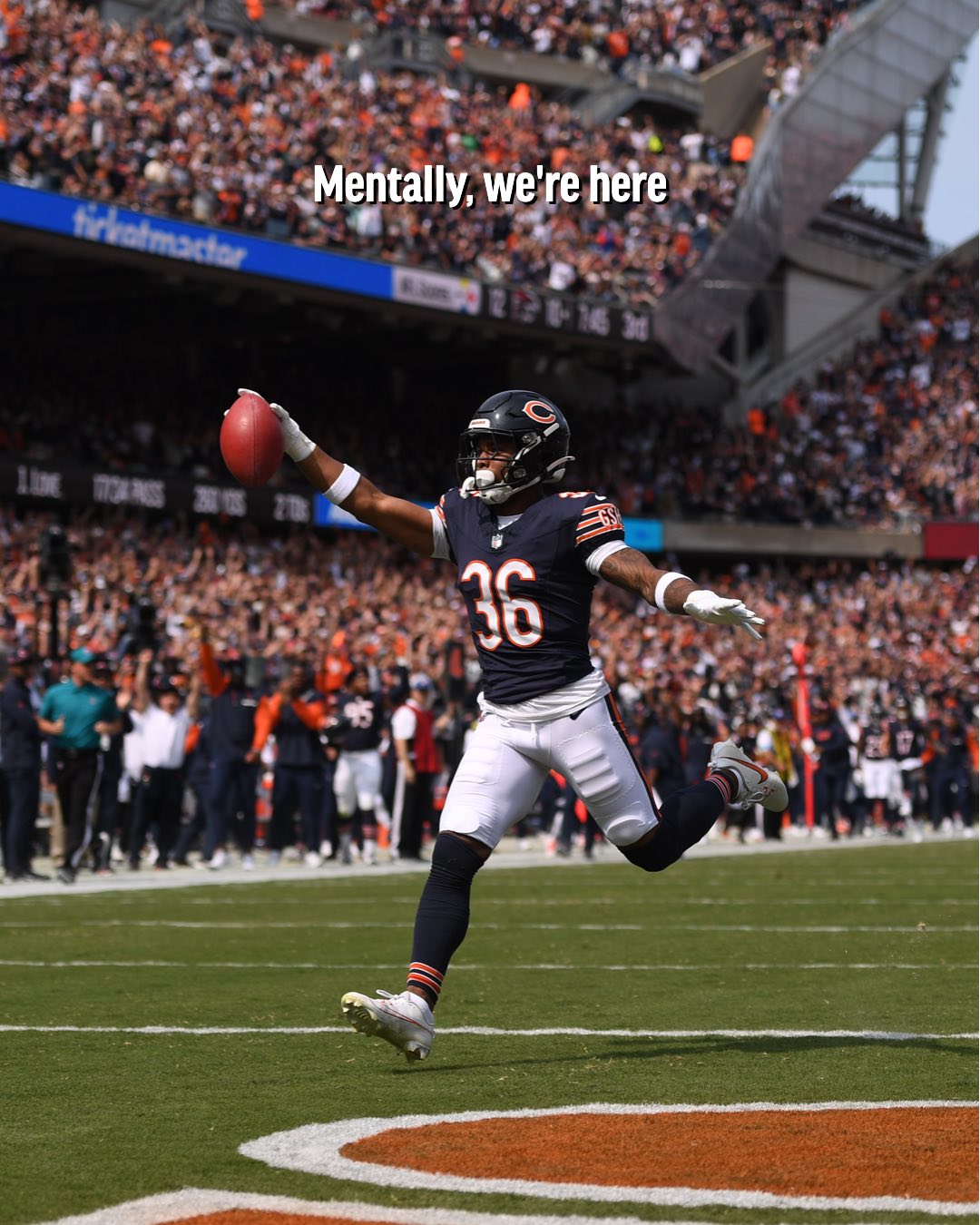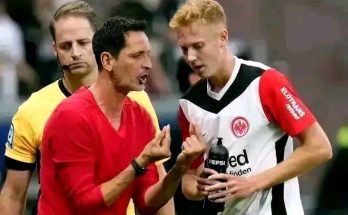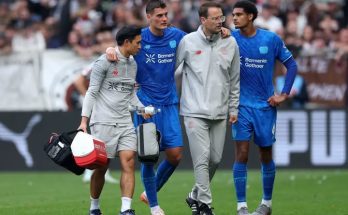Mike Florio’s most recent power rankings, released on June 23, 2025, landed the Chicago Bears at No. 17. His post–minicamp snapshot labels them as a team with renewed expectations — “The expectations are high again. Can they live up to them?” This prompts a direct query at the heart of the franchise’s current narrative: after several difficult seasons and a wave of changes, can the Bears truly deliver?
The Bears arrive at 2025 standing at a crossroads. After a miserable 5–12 campaign in 2024 that culminated with a rare midseason dismissal of head coach Matt Eberflus, organizational overhaul has been swift and sweeping. Eberflus was fired on November 29 following a prolonged six-game losing skid, marking the first time in franchise history a coach was dismissed midseason. Offensive coordinator Shane Waldron followed him out, with Thomas Brown briefly inserted as the interim helmsman. Though Brown managed just a single win across five games, the writing was on the wall: it was time for a clean slate (nbcsports.com, en.wikipedia.org).
In January 2025, the Bears hired Ben Johnson, fresh off three standout years as the offensive coordinator for the Detroit Lions — these were offenses that ranked among the NFL’s top five in scoring, and led the league with 564 points in 2024 (en.wikipedia.org). Johnson joins what could be a renewed coaching structure. Notable hirings include former Saints defensive coordinator Dennis Allen, tight ends coach Declan Doyle from Denver, Allen’s former Lions and Saints assistants in key offensive positions, and Eric Bieniemy joining as running backs coach — a staff built to burst Chicago out of its rut (en.wikipedia.org).
But the changes weren’t only behind the scenes. A deliberate roster rebuild has taken place around what could be the Bears’ most important asset: rookie quarterback Caleb Williams, the first overall pick, who arrived with sky-high expectations amid hopes he’ll finally end a decade-long post–Jay Cutler QB drought .
To bolster the line and add experience, Chicago executed a targeted free-agent strategy. Center Drew Dalman, guards Jonah Jackson and Joe Thuney, tight end Durham Smythe, and defensive additions Grady Jarrett and Dayo Odeyingbo signal an organization aiming to build both sky and ground support for its young field general (en.wikipedia.org). Adding veteran Case Keenum as a backup quarterback reflects fair preparation or prudent insurance.
This infusion combines talent and savvy. Jarrett offers immediate interior push on defense; Odeyingbo channels disruptive potential off the edge. Dalman, Jackson, and Thuney simultaneously address one of Caleb Williams’ biggest risks: blindside pressure. The Bears clearly identified their deficiencies and took serious steps to rectify them.
Florio’s summation is hard-hitting: expectations are elevated, but delivering under them is another matter. This rhetorical question is loaded — and timely. It reflects the tug-of-war between fan fervor behind Williams and the franchise acknowledgment that elite quarterbacks rarely thrive without complementary forces.
The immediate reception to their offseason moves has been largely hopeful. High-profile acquisitions and coaching hires have fans dreaming — but past failures loom. After all, the Bears haven’t tasted a winning season since 2018, and six consecutive losing seasons have drilled the possibility of hope diminishing over durability.
Yet, context counts. With leadership from a writer like Florio comes credibility. His “Can they live up to them?” isn’t cynical; it’s open-ended. It nudges observers to engage, not simply worship. Under Ben Johnson, with first-class matchups scheduled out of Soldier Field, the Bears now carry responsibility where before there was merely potential.
Chicago’s situation echoes what Johnson faced in Detroit: turning a younger signal-caller into a consistent playmaker. Williams’ learning curve will be steep. He’s never played a full season at the professional level, and Bears general manager Ryan Poles hasn’t hesitated before tapping the brakes on drafting quarterbacks — he waited until a franchise-altering talent was available. That gamble needs to pay dividends.
Success hinges on more than Williams. High expectations demand secondary buy-in. Can the offensive line reshape their narrative — especially given the Eli Foxcon-led rebuild? Can Jarrett free up space for linebackers and secondary coverage to be more effective? These players define ceiling and floor alike.
The NFC North remains unpredictable. Past seasons saw the Packers, Vikings, and Lions each alternately rise — but none hold dominance. Detroit’s Russell Wilson addition didn’t propel them to elite status; Minnesota and Green Bay are reorganizing. Chicago could exploit this? Yes — but only if they’re ready from Week 1.
Their preseason slate includes trips to Miami, Buffalo, and Kansas City — tune-ups that speak volumes about readiness. Come regular season, matchups against divisional opponents and contrasting styles will determine if Florio’s query is justified or premature. A 9–8 wildcard finish could be haunted by notions of overachievement, while a 12–5 playoff push would silence nearly all doubters.
Between Ben Johnson’s sophisticated offense, rookie vitals, veteran infrastructure, and meaningful expectations, this is the most coordinated reset Chicago has launched since the early Trubisky regime. Yet that didn’t yield sustainable success. Is this rebuild different?
Analysts point to Williams as the best QB prospect the Bears have drafted in decades. His character, football IQ, and mobility fit Johnson’s scheme — and new-age NFL philosophies. The coaching staff reflects a modern, collaborative mindset: offensive genius meets defensive resilience, veteran mentorship meets statistical design.
Still: that’s still theory. The NFL is littered with teams who looked assembled only to stumble out of the gate. A fluky injury, a misread in Week 5, or even playoff seeding pitfalls — any of it could re-frame the Bears as overconfident rather than confident. Florio’s ranking and question serve as both redemption trigger and warning label.
Fanbase reaction skews wide: optimism mixed with exhaustion. Soldier Field has become a stage for frustration — but it still echoes with passion. The Bears aren’t starting from zero. Their recent first overall pick added juice, but so did the signs of organizational accountability. Gone is the Eberflus ‘reactionary’ era. In its place is deliberate blueprinting.
Media coverage has shifted tone: from pity party to cautious celebration. Regional columnists cite improved media availability from coaches, player-transparency leaps, and an energized front office posture. Chicago could feel alive again — but that only matters if Monday-night lights translate to standing-room wins.
- Secondary durability: Can the young DB corps step up under veteran coaching? Their performance will determine if Williams can throw risky downfields with confidence.
- Running game: Balanced offense is Johnson’s hallmark. Will the line-and-backfield tandem mesh, turning a college-style QB into a pro-level field general?
- Ben Johnson’s polish: His reputation is strong, but this is his first head coaching test — from play-calling to media dealing to playoff-bait pivoting. Chicago isn’t Miami; it’s a pressure cooker.
Take “expectations are high again” not as brag, but as mission statement. That phrase signals that the past is done. It warns that in-house patience is furloughed. And it entices investment — from fans, sponsors, and NFL peers.
Florio isn’t giving the Bears a gold star. But he also isn’t taunting them. He’s issuing a challenge — hypnotic in its simplicity, stinging in its resonance: “This is your moment. Can you step up?”
So: can they live up to expectations? Yes — but only if they execute. The path is outlined: franchise QB, intelligent system, veteran structure. Checkpoint progress from OTAs to minicamps has been encouraging. Ownership changes (notably the passing of Virginia Halas McCaskey in February) smooth succession questions and give weight to long-term planning (bleachernation.com, en.wikipedia.org).
Yet the journey remains: pressure to win games, not headlines. Every preseason game will be scrutinized for signs of chemistry, injury, and play design. Fourth-quarter execution, red zone consistency, and turnover ratio will shape Chicago’s narrative arc.
Florio’s 17th ranking, intertwined with the line “expectations are high again,” is not hyperbole—it’s journalistic accounting. His question places Chicago on notice. Fans crave a contender; the front office gave them a blueprint. Now, the players must fill the architecture.
No draft-day hype, roster overhaul, or strategic hire matters without performance. A 10–7 season would validate the optimism. But a sub-.500 finish risks reminding everyone why Chicago languished for so long.
If the Bears thrive, Florio’s query will be forgotten: the statement will speak for itself. If they falter, the question will echo as a reminder — not of what could’ve been, but what should have been.
At 1,500 words, Mike Florio’s challenge serves as more than punctuation—it’s a starting gun. Chicago can race. But to flourish, they need to chase victory with forensic focus, adaptive savvy, and relentless will. This isn’t just a power rank: it’s a verdict phrase Chicago can choose to rewrite.



